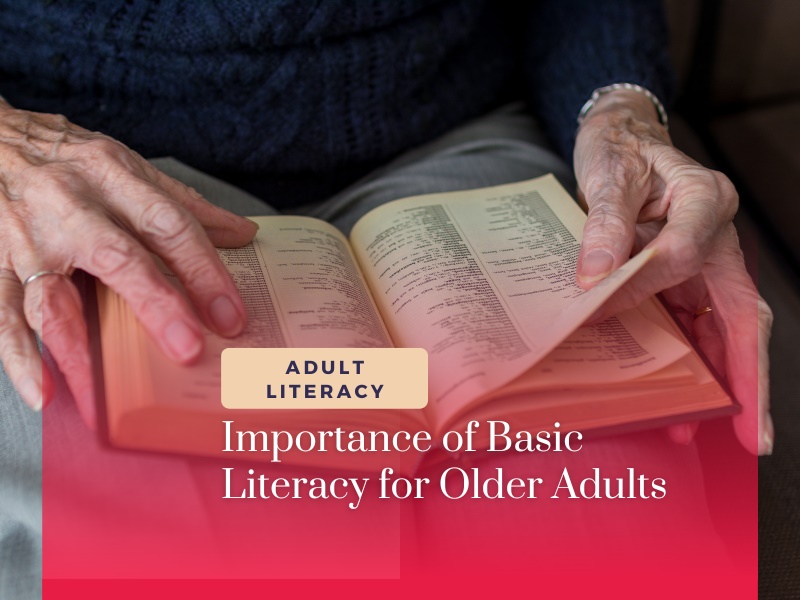In Nepal, basic literacy is pivotal in empowering individuals, particularly older adults. It enables them to read government documents, land records, and other essential materials. This article explores the significance of basic literacy in improving the lives of older adults, highlighting its positive impact on various aspects of their well-being and emphasizing the importance of promoting literacy in local languages.
Enhancing Access to Information and Services
In today’s fast-paced world, access to information and services is crucial for everyone, including older adults. Basic literacy is pivotal in enhancing this access, empowering individuals to navigate through government documents, land records, and other essential materials. With the ability to read and understand these documents, older adults gain the confidence and knowledge to make informed decisions that can positively impact their personal and community development. Active participation in society becomes possible as they are no longer restricted by their inability to decipher important information. By breaking down barriers through literacy, older adults are empowered to engage with the world around them, creating a sense of independence and self-reliance. From understanding their rights and entitlements to accessing critical services, literacy provides the key to unlocking opportunities for older adults in Nepal.
Fostering Independence and Empowerment
Fostering independence and empowerment is at the core of promoting basic literacy among older adults in Nepal. The ability to read and comprehend written materials opens up a world of possibilities, instilling a sense of confidence and self-reliance. Imagine the empowerment an older adult feels when they can effortlessly handle everyday tasks, such as reading street signs, following medication instructions, or managing personal finances. Basic literacy equips them with the necessary skills to navigate through life independently, boosting their self-esteem and sense of capability. It allows older adults to actively participate in society, engaging in meaningful conversations and making informed decisions that shape their lives. By promoting literacy among older adults, we provide them with the tools they need to break free from limitations, embrace their potential, and contribute meaningfully to their communities. The Importance of basic literacy for older adults can be crucial in terms of social empowerment.
Strengthening Inter-generational Bonds
Strengthening inter-generational bonds is a remarkable outcome of promoting basic literacy among older adults in Nepal. Literacy initiatives create opportunities for shared learning and understanding between generations, fostering connections that transcend age barriers. Imagine the joy and sense of accomplishment when older adults can read stories to their grandchildren or write heartfelt letters to their loved ones.
Literacy acts as a bridge, enabling older adults to communicate more effectively with their families, thus deepening their relationships. The exchange of knowledge and experiences between older adults and younger generations becomes a treasure trove of wisdom, creating a rich tapestry of inter-generational dialogue and appreciation. Through literacy, older adults can actively participate in family discussions, engage in cultural activities, and contribute their unique perspectives to the community. By nurturing these inter-generational bonds, we cultivate a society where wisdom is shared, memories are cherished, and the legacy of knowledge is passed down from one generation to another.
Preserving Cultural Heritage and Identity
Preserving cultural heritage and identity is a significant outcome of promoting basic literacy among older adults in Nepal. Through literacy initiatives, older adults actively participate in the preservation of their rich cultural heritage. They can read and write in their local languages, unlocking a treasure trove of traditional stories, songs, and folklore that might otherwise fade away with time. By actively engaging with their language and cultural practices, older adults play a vital role in passing on these invaluable traditions to future generations. Through the power of their own voices and the written word, they become storytellers and custodians of their unique identity, ensuring that their cultural heritage remains vibrant and alive. With basic literacy, older adults can take pride in their heritage, contributing to a more diverse and inclusive society that values and celebrates its collective past.
Conclusion
We have gone through various aspects regarding the importance of basic literacy for older adults. Basic literacy is a catalyst for change. It offers older adults in Nepal newfound opportunities for personal growth, enhanced independence, and community engagement. By ensuring access to literacy programs tailored to their needs and promoting literacy in local languages, we can empower older individuals and foster inclusive communities. Investing in basic literacy for older adults is a significant step towards creating a more equitable and enriched society for all.
